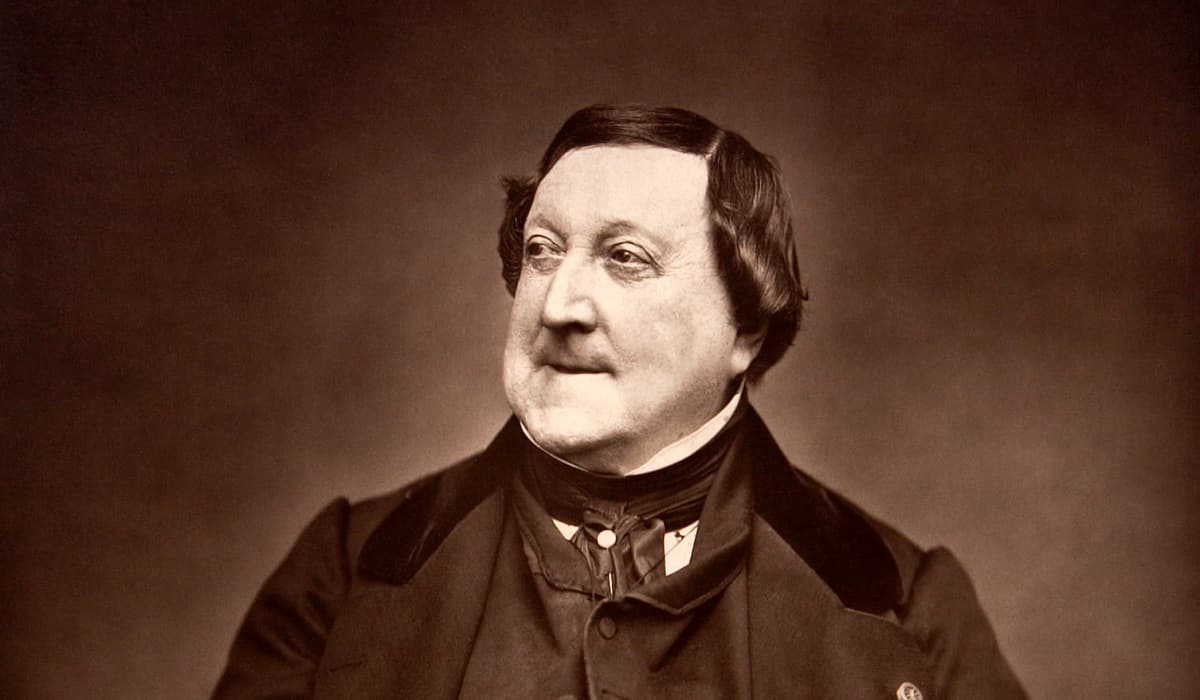Introduction
Gioachino Rossini (1792-1868) was an Italian composer whose vibrant operatic works have stood the test of time, captivating audiences for over two centuries. Known for his keen sense of melody and innovative orchestration, Rossini’s compositions span opera, sacred music, and instrumental pieces. This article explores ten of Rossini’s most celebrated compositions, showcasing the genius that earned him a place among the greats of classical music.
1. The Barber of Seville (Il Barbiere di Siviglia)
Premiere: 1816
Rossini’s masterpiece, The Barber of Seville, is one of the most beloved comic operas. The overture, with its lively and energetic rhythms, sets the stage for a story full of wit and charm. The aria “Largo al factotum” is particularly famous, showcasing the cunning and charisma of the central character, Figaro.
2. William Tell (Guillaume Tell)
Premiere: 1829
William Tell is Rossini’s final opera, renowned for its overture, which is one of the most recognizable pieces in classical music. The “March of the Swiss Soldiers” section from the overture has been widely used in popular culture, symbolizing high-speed chases and heroic acts. The opera itself is a dramatic retelling of the legend of the Swiss folk hero, William Tell.
3. Cinderella (La Cenerentola)
Premiere: 1817
Rossini’s take on the Cinderella story, La Cenerentola, is a sparkling opera buffa that replaces the fairy-tale magic with cleverness and charm. The opera is known for its vocal fireworks, particularly in the aria “Non più mesta,” which showcases the mezzo-soprano’s virtuosity.
4. The Italian Girl in Algiers (L’Italiana in Algeri)
Premiere: 1813
L’Italiana in Algeri is a comedic opera filled with exotic flavors and energetic rhythms. The story revolves around the resourceful Isabella, who outwits the Algerian bey to secure her freedom. The opera is famous for its overture, which is a brilliant example of Rossini’s gift for melody and humor.
5. Semiramide
Premiere: 1823
Semiramide is a grand opera that marks a transition in Rossini’s style, blending the bel canto tradition with dramatic depth. The opera is noted for its demanding vocal parts and its impressive overture, which foreshadows the dramatic intensity of the story about the legendary Queen of Babylon.
6. The Thieving Magpie (La Gazza Ladra)
Premiere: 1817
Known for its overture with its striking snare drum rolls, La Gazza Ladra is a semiseria opera that combines comic and serious elements. The story of a magpie that steals a silver spoon, leading to a wrongful accusation, unfolds with a blend of humor and pathos, characteristic of Rossini’s operatic style.
7. Stabat Mater
Premiere: 1842
Rossini’s Stabat Mater is a sacred work that demonstrates his ability to compose deeply emotional music outside of opera. This piece is a setting of the traditional Catholic hymn, and it is praised for its powerful choruses and beautiful solo arias, capturing the sorrow and devotion of the text.
8. Tancredi
Premiere: 1813
Tancredi is one of Rossini’s early operas, combining heroism with romance. It includes the famous aria “Di tanti palpiti,” which became so popular that it was nicknamed “The Aria of the Cavatina.” The opera’s rich orchestration and expressive melodies make it a highlight of Rossini’s early career.
9. The Silken Ladder (La Scala di Seta)
Premiere: 1812
La Scala di Seta is a one-act comic opera known for its brisk and bubbly overture. The plot revolves around a secret marriage and a clandestine ladder used for nightly visits, typical of the farcical intrigue found in Rossini’s early comedies.
10. Petite Messe Solennelle
Premiere: 1864
The Petite Messe Solennelle is one of Rossini’s later works, written after he had largely retired from composing opera. Despite its title, the mass is not small in scale but rich in musical content, blending traditional liturgical elements with Rossini’s unique melodic style. It is considered one of his most profound sacred compositions.
Conclusion
Gioachino Rossini’s legacy is defined by his extraordinary ability to blend melody, drama, and humor. His operas continue to be a staple of the classical repertoire, and his sacred and instrumental works are equally celebrated. Whether through the wit of The Barber of Seville or the grandeur of William Tell, Rossini’s music remains a testament to his genius and enduring appeal.


Comments are closed